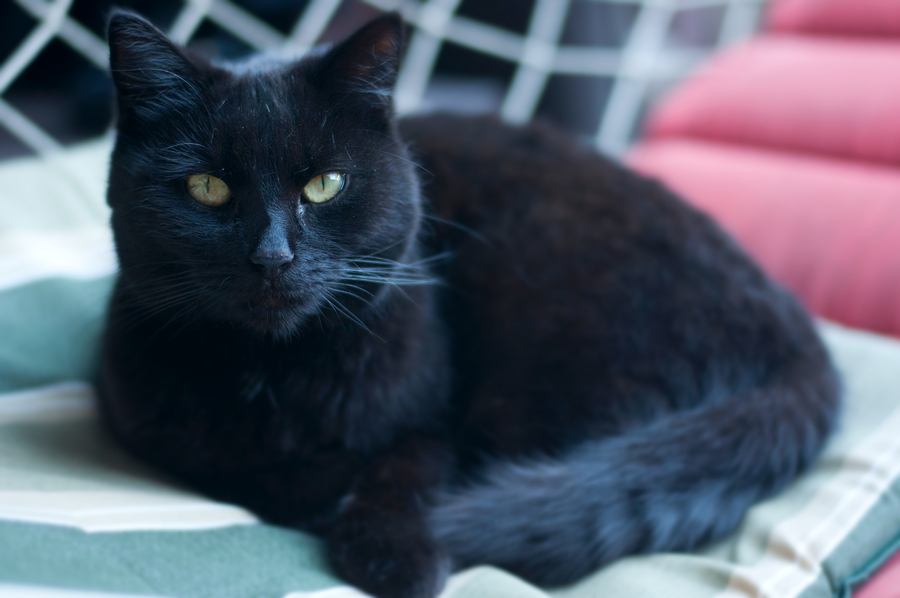Just like humans, cats can have problems with their gallbladders. Here’s how I explained it to a reader with questions.
Q: My cat has an inflamed gallbladder and maybe a blocked bile duct. I didn’t know cats could have gallbladder problems! What can you tell me about them?
A: The gallbladder is basically a storage unit for bile. This bitter, greenish-brown fluid secreted by the liver has two purposes: It helps the body break down dietary fats for absorption by the body, and it helps the body remove certain types of toxins. The gallbladder releases bile in response to hormonal signals, the bile does its job, and then it exits the body through the feces.
When cats develop certain types of liver disease such as cholangiohepatitis or hepatic lipidosis (sometimes called fatty liver disease), the accompanying inflammation can cause a bile traffic jam in the liver and biliary ducts — the pathways that bile travels into and out of the gallbladder. Bile, being a digestive fluid, isn’t just bitter — it’s caustic. When it can’t flow freely, it can cause serious tissue damage in the areas where it’s stuck.
Cats with cholangiohepatitis, the most common acquired inflammatory liver disease in cats, typically don’t feel like eating, run a fever, vomit and develop jaundice, the latter indicated by a yellow tinge to the whites of the eyes. These cats may also have associated bacterial infections, inflammatory bowel disease or pancreatitis, to name just a few complications.
Fluids, antibiotics and pain medications are prescribed to help get bile flowing, give a one-two punch to infections, and just help the cat feel better so he’ll start eating again. (That’s important to help prevent hepatic lipidosis.)
Some cats have an immune-mediated form of disease that doesn’t respond to antibiotics. They are usually treated with steroids given daily or every other day. Antimicrobials, a special diet, fluids, and B vitamin and electrolyte supplements may also help.
There’s more in Pet Connection, the weekly nationally syndicated pet feature I co-write with Kim Campbell Thornton and my daughter, trainer Mikkel Becker.


